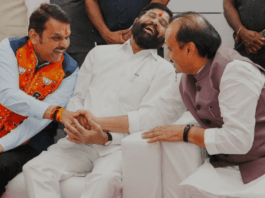The Supreme Court has granted an extension of two weeks for protection against coercive action to four members of the Editors Guild of India (EGI) who are facing two FIRs in Manipur. These FIRs accuse them of promoting enmity between different groups. The court has asked the complainant to explain how this charge is applicable to the EGI and its members.
The Supreme Court has stated that the crime of promoting enmity between groups, as mentioned in the Manipur Police FIR, does not seem to be valid. The court has also questioned how simply giving a report can be considered a crime. The Manipur government, represented by Solicitor General Tushar Mehta, has suggested that the top court continue protecting the EGI and its members and transfer the plea to the Delhi High Court if necessary.
Previously, on September 11, the Supreme Court extended protection from coercive action to the EGI and its members until Friday. It also sought the opinion of the Manipur government on whether to transfer their plea for quashing the FIRs and seeking other relief to the Delhi High Court. On September 4, Manipur Chief Minister N Biren Singh announced that a police case had been filed against the president and three members of the Editors Guild of India, accusing them of trying to incite clashes in the state.
A second FIR was filed against the four members, with an additional charge of defamation. The initial complaint was lodged by Ngangom Sarat Singh, a retired engineer who had worked for the state government. The second FIR was filed by Sorokhaibam Thoudam Sangita of Khurai in Imphal East district. The EGI president Seema Mustafa, along with senior journalists Seema Guha, Bharat Bhushan, and Sanjay Kapoor, are named in these FIRs. They visited the state between August 7 and 10 to study media reporting on ethnic violence.














